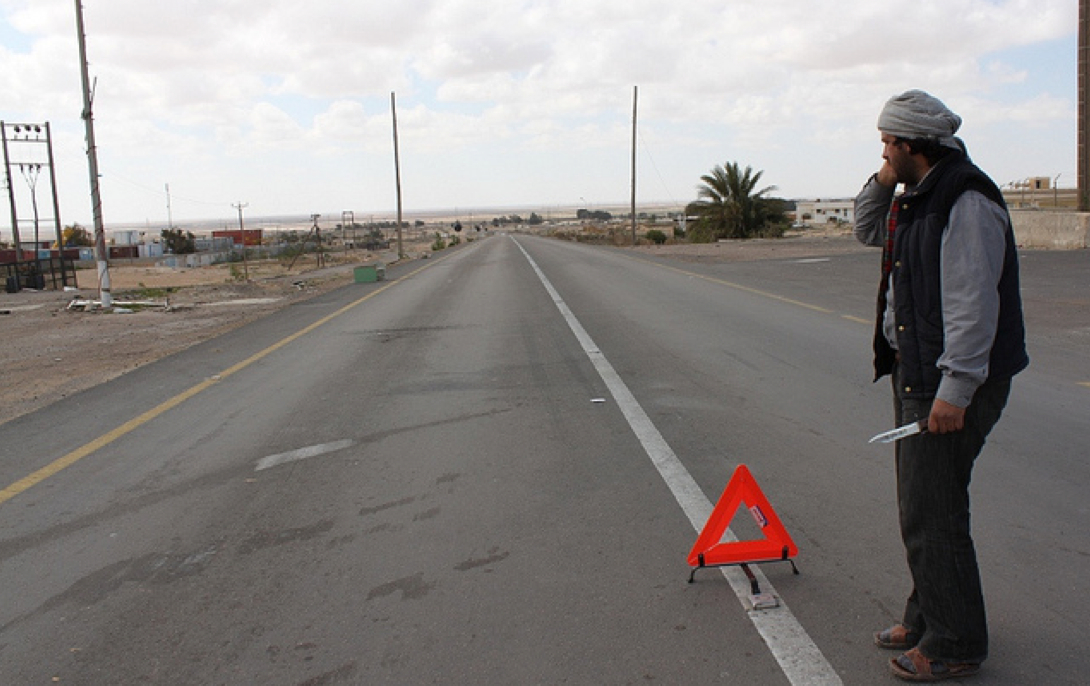The Libyan conflict will not end soon. This has been obvious for weeks now. In part, this is a direct result of the US and NATO bombing campaign, which has leveled the battlefield between Qaddafi and opposition forces. This has saved lives. It has also led to a military stalemate.
In practice, there are limits to what foreign military power can do. First, air strikes cannot protect people under the control of a regime or rebels who use criminal violence as a basis for their power. Ghadaffi still has the power to terrorize people living in areas within range of his forces. EU troops in Misrata may help the people there, but will not change that fact. Second, air attacks cannot depose a leader, even when the list of legitimate targets expanded to the absurd, such as NATO did against Serbia in 1999.
Does this mean that we should change course? We should certainly not delude ourselves: Ghadaffi’s regime will not fall as a result of a rapid intervention by NATO ground forces, primarily because such intervention is not going to take place fast enough: for the past twenty years, intervention has always happened at a time and a place decided by the politics played out in foreign capitals and with only passing reference to what is needed on the ground and when.
Some point to the UN and French actions in Ivory Coast as an example of timely boots-on-the-ground intervention. It’s a good example to consider. Ivory Coast had gone through a protracted political crisis and the country had been divided in half between two relatively well-organized groups, both of which combined military force with a political agenda. UN and French forces had been on the ground in the Ivory Coast for years when they finally acted to support the winner of the election, but only once Ouattara forces were in Abidjan and the situation began to resemble a protracted urban war. We are far from an Ivorian scenario in Libya, not least because there has not been any internal political process to speak.
When a regime is led by people committed crimes and violence as the basis for their control, protection of civilians will ultimately require the deposition of those leaders. However, all the experience of the past two decades is that the only justifiable way to dismiss these leaders is from within. It was not the NATO bombing in 1999 that ousted Milosevic, but a well-organized, grass-roots movement in Serbia in 2000. It was not the UN and French soldiers that brought Gbagbo to his knees, it was first and foremost a well-organized campaign from Ouattara’s supporters in the country and the region that combined politics, sanctions and military operations. The UN and France acted in the final stages of this process to prevent Abidjan from being completely destroyed in the process of the inevitable fall of the Gbagbo regime.
In Libya, neither side is able to win a military victory at this stage. People will die as a result of this. The obvious action is not an intervention with ground forces on the side of the opposition, but a negotiated end to the fighting and a truce administered by a UN peacekeeping operation that physically separates Ghadaffi and the opposition. This will not only save lives but also provide the opposition in the eastern part of Libya the ability to launch a national political process with a focus on removing Ghadaffi and preparing the ground for what will come after him.
There are no short-term military solutions to the Libyan conflict. The push for a ceasefire should continue, even if we know Ghadaffi will prove difficult to pin down, let alone trust. Diplomatic efforts by Turkey and the African Union should be supported by the EU and United Nations. The fact that all have their own reasons to act does not undermine their potential effectiveness. There are more than enough cooks in this kitchen to keep the competing agendas fairly transparent (bickering is not a bad thing sometimes).
Having backed the opposition, NATO has a special responsibility to ensure the opposition leadership starts to behave with a bit more strategic insight and a little less posturing. As long as air strikes continue as they will tend to look toward the sky for inspiration instead of organizing a political movement on the ground. Ghaddafi will never fall is the opposition fails to make organised inroads, most of all in Tripoli.
Above all, NATO countries should not indulge the fantasy that the insertion of ground forces in order to depose Ghadaffi will lead to better protection of civilians. NATO ground troops and several air operations will only increase the level of violence and lay the foundation for a long and messy insurgency. The solution to the situation in Libya can only be found by the Libyans themselves. We cannot do this for them. But that does not mean there is nothing we can do.
A version of this post was originally published in the Norwegian daily newspaper Klassekampen by Mark Taylor, Researcher, and Morten Bøås, Research Director, Fafo Institute, Oslo, on 20 April 2011.
